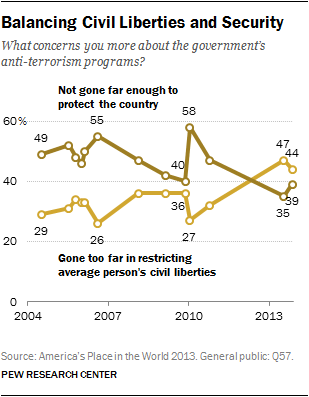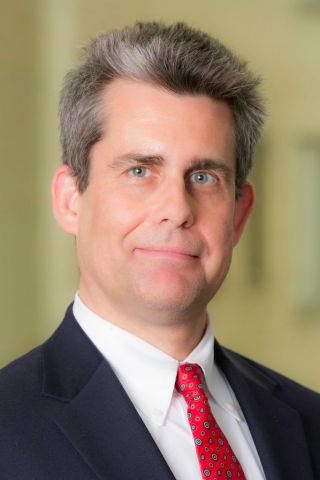With several major technology companies pushing back against the U.S. government’s phone and internet surveillance measures, Americans remain deeply divided about the programs’ effectiveness and desirability.
In the past several months Americans have learned much about the government’s secret surveillance programs — including tapping into Google and Yahoo’s data-center communications links, tracking the locations of hundreds of millions of cellphones worldwide, and collecting phone records on millions of calls directly from telecom companies.
While 39% of Americans said such programs have made the country safer against terrorism, 38% said the programs have made no difference and 14% said they’ve made the country less safe, according to the Pew Research Center’s recent “America’s Place in the World 2013” report.

In addition, a growing share of Americans today are worried that government anti-terrorism programs are infringing on civil liberties. In the Pew Research survey, 44% said the government’s policies have gone too far in restricting the civil liberties of average people, up from 27% in January 2010. By contrast, 39% said in the latest survey that they were mainly concerned that government policies haven’t gone far enough to protect the country, down from 58% who said that in January 2010.
Much of what the American public knows about the government’s elaborate surveillance programs comes from Edward Snowden’s disclosure earlier this year of classified information. Nonetheless, 55% said Snowden’s leak had harmed the public interest, while just 34% said his actions served the public interest.
